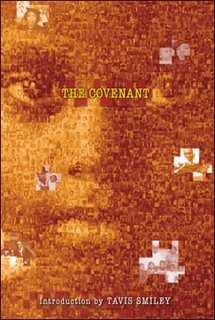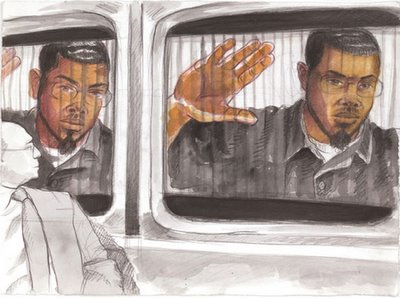Whenever I lecture of race and ethnicity envitably I get questions about racism around the world. I always hesitate to answer the questions, trying to feel what the person is asking. For me to answer accurately, I would have to know the situation they were talking about, as well as the social, historical, and political dimensions of the landscape to really give a decently accurate response. I guess it’s a response to not wanting to be “wrong” or misread a situation or continue to perpetuate the belief that race, as it is lived in this country, is the way race functions everywhere else. There are some particular things about the ways race and ethnicity function in this country that make it unique, but certainly not an outlier.
On the global level, racial or ethnic divisions can be seen, but not necessarily in the fashion that we construct them here. A couple of years ago a I had a student come up to me and tell me that he was trying to explain to an African immigrant to this country that he was Black. He said, “Man, Dumi I tried to tell him, but he just didn’t understand.” Besides feeling shame for having clearly produced a student who missed the nuascences in these social categorizations, I was reminded that my student, like most people read the US constellations of race and ethnicity as global. This shouldn’t be suprising, hell, most Americans see the rest of the world through their own positionality. It is not to say that we all don’t have a unique view point, but Americans seem to seldom interrogate why they view the world as they do. Who is Black? Who is White? Who is male? Who is female? All of these answers can vary dependent upon where you are. So why do American insist on reading race, in particular, in a US centric fashion? Maybe because sometimes it fits or does it?
Recently, the state of Michigan has been ripe with discusion of this ad. You’ll have to enlarge the ad to read the text. Essentially it talks about how when Jesse Owens in 1936 campaigned for a Republican candidate. In the quote Owens explains he campaigned for him because when he won his gold neither Roosevelt nor Hitler would shake his hand, but the Republican candidate did. The ad goes on to explain how African Americans have long been treated poorly by the democrats and now it’s time for a change (I assume he wants me to vote for Dick DeVoss). I think the ad is pretty interesting for its imagery and argument. Also shout out to Daily Kos for publishing it. I had a hard time locating it, probably because of the Hitler image. For the past five years or so, I keep hearing Republicans and members of the right talk about how African-Americans are considered a given to the Democrats and how we’ve been SO mistreated, so we should really not show our allegiance. This type of reasoning always reminds me of the quote “No permanent enemies, no permanent allies, only permanent interests.” So I ask, what the hell interest does the right have for my condition?
I agree that democrats have been “hoeing” us for a long time. I agree that we are one of the most reliable blocks, but honestly the other side of the fence doesn’t seem to have my interests at heart. Let me count the ways: 1) anti-felon voting rights, 2)disproportinate sentencing, 3) reduced social spending, 4) anti-affirmative action, 5) increased military presence internationally… and the list goes on and on like Shyheim. Good try on the ad fellas, but please do realize we’re a little smarter than seeing a set of images and thinking what was in the past, is in the present. The context of Owens’ life (domestically and internationally) was one of exclusion and hatred and in many ways, African-Americans’ lives remain analogous. But I think we’re clear who won’t shake our hands now… ain’t that Right?
And on a related note kinda, how about that World Cup finish?

There a couple of things recently that have peeked my interest as it relates to race and education. As you know, the state of Michigan remains embroiled in a battle over Affirmative Action, which may come to a head in November. I’m slacking on the updates around the legality of the MCRI signatures, but I’m figuring that stuff will wash itself out. If you want me to continue posting on that stuff, drop me an email or comment. Okay, but I digress.
The Supreme Court has recently decided to hear cases on the race and school assignment. If you had a chance to read any of the Harvard Civil Right’s Projects reports over the last five years, you know that our children are going to more segregated schools than they did nearly 50 years ago. Of course this is not without debate, the Thernstroms have argued that segregation has decreased in school in their book No Excuses. Regardless of which side you believe (and I fall in line with HCRP because of their methodology, not ideology) the classrooms that children attend as well as the students they sit next to affect their educational performance.
In this NY Times piece the CEO for the Center for Equal Opportunity classifies research that provides evidence that racially mixed schools yield educational benefits as “touchy-feely social science.” *Ouch* I guess considering the relationships between children as important to their educational accomplishments is soft. Well then, call me a powder puff.
I think at the root of this issue is not simply desegregation, but integration. While a court can mandate that groups co-exist and occupy the same space, a court can never guarantee that these groups will integrate into each others lives. As someone who finds myself aligning more with Black nationalism (in some form) than liberal intergrationism, I know their are many issues in this. Many nationalists as well as conservatives will take this opportunity to suggest that consideration of race or desegregation is not needed, but not so fast. I would argue without desegregation, the odds for integration dramatically reduce. I guess one could consider desegregation the lynch-pin to integration. In that sense, without desegregation, you shouldn’t expect to see the “benefits” of integration. Which leads me to Booker T. Washington.
The larger question of integration is one that has always intrigued and plagued me. Booker T. Washington posed an interesting position at his Atlanta Compromise address when he said,
“In all things purely social we can be as separate as the fingers, yet one as the hand in all things essential to mutual progress.”
In my own research, I’ve come to see the issue with this idea is the fact that social worlds between Black and Whites are largely separate. So the ability to reap the economic, and in this case educational, gains of others is less likely.
Simple example, trips to the local library to read about Peru pale in comparison to trips to Peru. When we talk about children’s experiences and opportunities we have to realize that exposure is paramount for healthy social and academic development. By assuming that we can segment our experiences, when they are still unequal, will leave us behind still, right? Aight this is way too complex for me to be posting on right now. In fact this post was started weeks ago and I need to be writing a dissertation!!!
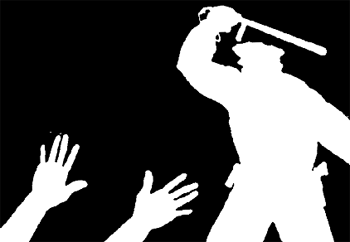
In the past two weeks I’ve received an email from current U of M student Krisilyn Frazier about the death of Clifton Lee Jr at the hands of the Washtenaw County Sheriffs. Issues of police violence can brew uprisings, distrust, and organizing for progressive change.
Krisilyn has stepped up and wants any help she can get in organizing a Peace March later this summer. She says it best, so I’ll quote her here,
As I stated before, the purpose of the Peace March is to promote peace and unity within the community. It will give the community an opportunity to speak out against black on black violence, police brutality, and racism. This is not an attack on ALL blacks or ALL police, just against those who commit the crimes and those who demonstrate insensitivity toward minorities as individuals who deserve equal respect and protection under the law.
You can contact her at frazierk@umich.edu for more information.
*As a note the information on Accountable Community Policing that I linked to can be found in Covenant IV of the The Covenant. Gotta use what we know.
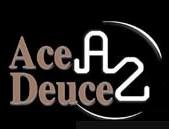
The post title probably makes you think I’m gonna write some deep introspective stuff… sorry not tonight. But there are a couple of things going on in Ann Arbor that I thought you may like to know are going down.
This Saturday the Ann Arbor Branch of the NAACP is hosting its annual Juneteenth gathering! It will be happening from noon to 5pm at Wheeler Park. It’s a nice family friendly event which features food, performances, and even some Bid Whist (how’s that for Midwestern)!
Next Thursday, June 22nd from 10am to 6pm The Black Factory is stopping into Ann Arbor. The Black Factory will be at Liberty Plaza, it’s that little concrete park thingy at the corner of Liberty and S. Division. Definitely follow the link above to see the brochure about the Black Factory. I’ll have to try to stop by to see what is going on, it seems really interesting.
And while I’m on my Ann Arbor kick, have you been to Another Ann Arbor? It’s a great website which is one of the original resources on things Black in Michigan.
The book, in my estimation, is a continuation of the lineage that Du Bois sought to establish with the Atlanta Conferences. While many have attempted systematic analyses of the conditions of African-Americans across a broad spectrum, few have successfully conducted these analyses and provided prescription for change that could be understood at the individual, family, community, and policy levels. The Covenant does this. Now of course the book is not perfect, one could desired deeper analysis from some of the contributors, but I ask you to suspend your “academic hat” of deconstruction and “critique for the sake of critique” and take the time to see how each essay fits into the whole.
Read my full review here.
The Covenant Tour is going to conclude in Detroit this Friday, June 16th at 7pm at
Greater Grace Temple
City of David
23500 W. Seven Mile Road
Detroit, MI 48219
It’s free and open to the public!!!
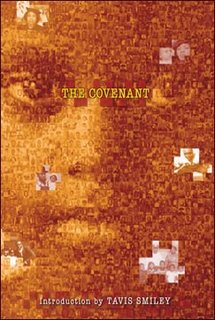
I think we’ve all heard of it, we’ve all had our opinions about it, but I’m not sure we’ve all read it. This weekend I took the time to sit down and read Tavis Smiley’s The Covenant. In fact, let me correct that, I took the time to read The Covenant. Many people that I have discussed the book with have expressed apprehension as well as interest in reading the book entirely based upon Tavis Smiley’s production of it. I would say, neither of these sentiments are actually warranted because the Covenant is a collection of essays and facts compiled by some of today’s leading scholars and activists. Tavis in this sense was a conduit but seems to leave himself out of it pretty well.
For a couple of years I have watched Tavis’ State of the Black Union gatherings on C-Span and my allegiance to them have shifted from year to year. I can’t front, they are really appealing. To me the State of Black America gatherings were like going to church, hearing a great preacher without having to give an offering or being guilted when “the doors of the church are open”. My main critique of Smiley’s gatherings was/is that they featured great speakers but there was a lack of substance that could be drawn from them. The Covenant is supposed to ground the oral acrobats of past gathering and till the soil of an action plan.
I decided to read the Covenant in its entirety after I heard from an old friend of mine who called me and wanted to know my views on the book. Before responding, I swallowed my pride and forthrightly admitted that I had not purchased the book and was considering purchasing it in the near future. In a non-indicting way, he said, “Wow, I figured you already had a copy, had read it, and had started some things around it.” I’m not sure if he invoked my ego or he humbled me, but I realized that I too had transformed into my own worst nightmare, someone who was 80 percent talk and 20 percent walk. So I pulled together my 12 dollars and picked up my copy. Many folks may not know that all proceeds from the purchase of the Covenant go directly to Third World Press. I didn’t realize this until I read Cornel West’s commentary at the close of the book. In this way Tavis ensured that a Black Press received his business, a great action in my view.
My purchase of the book also was interesting, since I was in a rush, I asked the Borders clerk, a white male in his twenties, if he had heard of the Covenant. He said, “Yeah, it’s back here… We have like a million of them.” At that moment I’m not sure if I was glad to know that the book has been so widely distributed (it’s a New York Times Bestseller) or mortified that so many copies had been purchased but no one was buying it anymore. I think I still feel a little of both.
So as I waited in the airport for a trip this Friday I began reading. I was surprised at the lack of hyperbole in the opening of the book. I won’t front, I was expecting a long Westian or Dysonian diatribe on the plight of Black people, you know… “a blues people” or “ because the streets is a shortstop cuz you’re slangin crack rock or you got a wicked jump shot”, but instead I was immediately taken straight to the meat.(On a side note, Dyson is conspicuously absent from the book, while West does sneak in small essay at it’s close.) The book, in my estimation, is a continuation of the lineage that Du Bois sought to establish with the Atlanta Conferences. While many have attempted systematic analyses of the conditions of African-Americans across a broad spectrum, few have successfully conducted these analyses and provided prescription for change that could be understood at the individual, family, community, and policy levels. The Covenant does this. Now of course the book is not perfect, one could desired deeper analysis from some of the contributors, but I ask you to suspend your “academic hat” of deconstruction and “critique for the sake of critique” and take the time to see how each essay fits into the whole. I consider myself decently well read, but the range of the topics covered here, the statistics presented, and the suggestions for change were enough to have me satiated as well as hungry for more insight and actions. The language is accessible, the range is pretty comprehensive, and the diversity in voice is powerful.
The Covenant tackles:
Health,
Education,
the Criminal Justice System,
Policing,
Community Development,
Voting Rights,
Rural Needs,
Economics Well-Being,
Environmental Justice,
and the Digital Divide.
This is all done in about 230 pages, this is no small feat!!!! Each covenant (or chapter) opens with an introductory essay on the subject matter. This essay is followed by bulleted facts on the conditions of African-Americans. Next prescriptions of what “the community” can do follow. They are followed by what elected officials can do. Then brief case studies of successful examples of grassroots efforts around these issues are described. Lastly each covenant closes with the endnotes from the essay which provide nice supplementary reading lists. At the end of each covenant, I found myself not only feeling more versed in the topic but also aware that many of us have been successful at affecting our conditions with small actions that yield big results. All in all, I was very impressed with this book. I think this book could provide everyone with some new insight and ideas for social change.
So it’s apparently here, the (print) media blitz over Black men. The Washington Post is now running a series on Black men, I plan to post my thoughts on their series and like most other things, whatever else I darn well please!
The opening piece in the series is based on a poll that the Post conducted. As the title suggests, the results are a really mixed bag. For the past 8 years or so, I’ve found myself consistently uttering the statement, “Being a Black male is all about contradictions.” I often say this statement with a tongue-in-cheek candor to my friends and family, but I, in many ways, do believe this. From my perspective, Black masculinity is a fabulously contradictory constellation. I won’t dive into that, better minds have already done this (1,2,3).
But the survey, at the least, confirms that we see ourselves in complex and in some cases in contradictory ways. As a young Black man I can think of times when I complain about the ways in which women (often White) have changed their posture upon seeing me or outright have run from me because they saw me approaching on a street. But at the same time I recently told my girlfriend that while those types of responses are not ideal, that she should do what she thought made her feel safe (within reason) when she asked about a similar situation. Contradictions. It’s kind of the the same way we don’t flinch when Pac can make “Keep your head up” and “Wonder why they call u b-tch.” To many, this would be a fatal flaw among Black men, but if it is a fatal flaw then we should really struggle to understand where it comes from. In part, it’s got to be attributable to our social position – privileged as men but disadvantaged as Black men in a predominantly White world. But as always, there is more to that story…
Despite our diversity of perspective on our own social conditions and why we are where we are, some things remain pretty central to us.
Despite their clear achievements and general optimism about their prospects, black men worry more than virtually everyone, the survey found.
For a while social science research has been finding evidence that more middle-class African-Americans experience more discrimination, but this still seems to shock many. It really challenges the dominant economic narrative of racial discrimination really being discrimination based on skills or other “unobservables”.
If anything, the survey suggests that better-educated black men experience more direct racism than those with fewer resources. For example, 63 percent of educated, upper-middle-class black men said they have been unfairly stopped by police, compared with 47 percent of less-advantaged black men.
It’s also pretty interesting to see how White men view us… more details are in the survey pdf if you want to check it out, but here is a snippet from the article.
Regarding the obstacles black men face and their prospects for the future, whites were the most optimistic. Black women tended to be the most pessimistic, even more than black men, with only 44 percent of black women saying that now is a good time to be a black man in America . Black women were also just as likely as their male counterparts to see the economic system as biased against black men.
In sum, I am very interested by the poll and will hopefully this weekend plow through the supporting materials in their entirety. Two glaring issues are incarceration and that fact that it was conducted over the phone. With 8 percent of the Black male population imprisoned, there is a considerable perspective that may be missing. And a phone survey likely means that they undersample lower-income people or people with more transient lives. But that’s just the sociologist getting a little nerdy.
Rachel over at Rachel’s Tavern also beat me to posting on this, so I’d suggest you drop by her spot and see what she has to say.
Oh, and should I be ashamed that I cringe each time I see Chuck Brown picture…

To many Black folks (including Black Latinos) the claim “I have Indian in my family” or some variation there-in is common. Rather than demand DNA tests, I’d encourage folks to read things by Tiya Miles or just read some of the recent stories that display some important happening and commonalities that matter for all of us… other than your long flowing hair ;)
Native Health and Education…
If you’ve been keeping your ears to the streets (or just have a good informant like I do) you’ve heard about the Bush Administration’s attempt to completely cut the Urban Indian Health Program as well as some educational funding. Thankfully, due to great advocacy and organizing, that is not going to happen and the new budget is looking better, though there is still a ways to go.
By a 293-128 vote, the House passed Interior’s fiscal year 2007 budget bill on Thursday. The measure funds Indian programs at a total of $5.9 billion, $204 million above current levels and $62 million above the amount the White House requested in February.
For a more detailed picture of what’s been going on, check out this story at indianz.com.
Them bones…
Margaret Kimberly provides a nice commentary at Blackcommentator.com on the Bushs’ lineage and George’s ancestor’s pillaging of Geronimo’s bones. It’s actually pretty funny (and dare I say refreshing) to hear a genetic argument about the deviance of the Bush family!
Mascot Madness…
And as you probably know already, but if you didn’t here is a link, the NCAA declined three schools’ appeals to use Native Mascots at the end of April. Of course this is not the last that we will hear of this, particularly from the North Dakota, where letters of support and disagreement were issued by native communities. The article has a decent summary on past happenings, so I’ll let you read it.
Lastly, shout out to Heather “Unbreakable” Brink for keeping me updated and staying on me to post. Now only if she would stop playing sports and sending the national healthcare situation into crisis ;P

